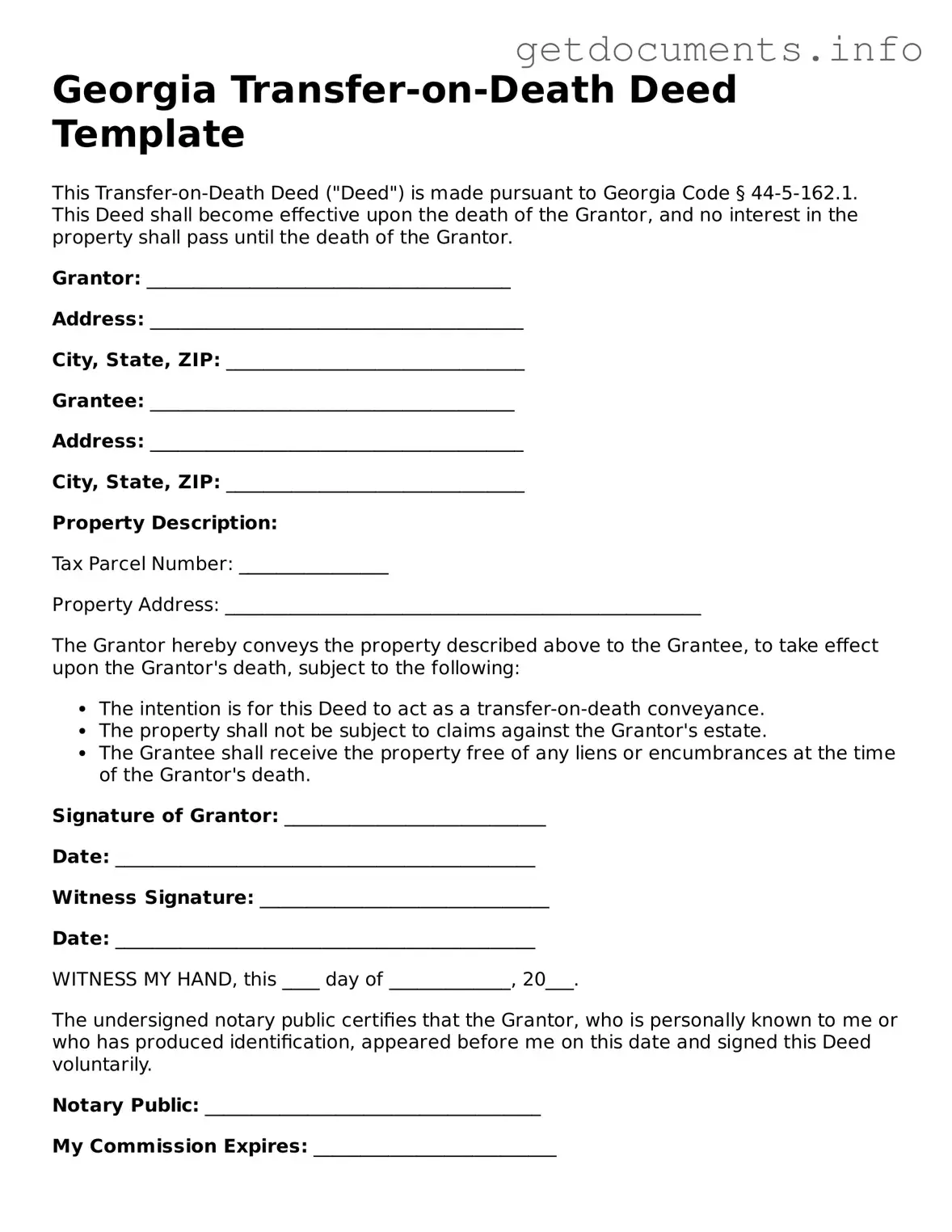Free Transfer-on-Death Deed Template for Georgia
A Transfer-on-Death Deed in Georgia allows property owners to transfer real estate to beneficiaries upon their death without going through probate. This legal document provides a straightforward way to ensure that your property is passed on according to your wishes. To simplify the process, consider filling out the form by clicking the button below.
Access Transfer-on-Death Deed Editor

Free Transfer-on-Death Deed Template for Georgia
Access Transfer-on-Death Deed Editor
Got places to be? Complete the form fast
Fill out Transfer-on-Death Deed online and avoid printing or scanning.
Access Transfer-on-Death Deed Editor
or
⇩ PDF File
